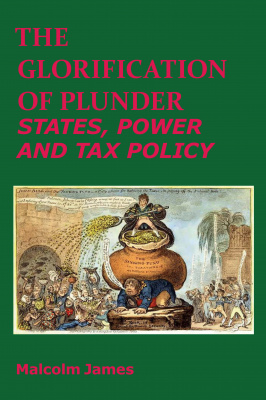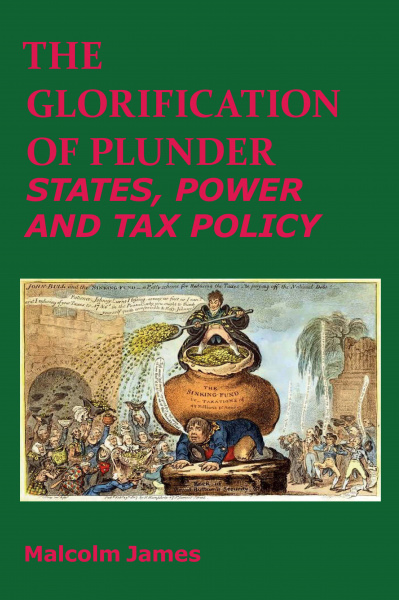The Glorification of Plunder
State, Power and Tax Policy
This book is about two things: tax and power.
This book explores the complex dynamics of the debates which inform tax policy, the interaction between tax and power and how power relations between various groups in society and between individuals and the state are manifested through tax system. This helps to explain why the rules, procedures and practices are all formulated to suit their interests of the most powerful groups in society.
- AvailablePaperback9781910151440238 pagesList Price: GBP 19.95 Add to basket
- AvailablePDF9781910151457238 pagesList Price: GBP 9.99 Add to basket
This book is about two things: tax and power.
The processes through which tax law is formulated, involve more than the formal legislative and judicial processes which result in statute and case law. Tax law is an expression of tax policy, which is subjective and a heterogeneous product of states, cultures and politics.
Regarding taxation as a branch of either black letter law or orthodox economics ignore, or even deny, this subjectivity. This book explores the complex dynamics of the debates which inform tax policy, the interaction between tax and power and how power relations between various groups in society and between individuals and the state are manifested through tax system. This helps to explain why the rules, procedures and practices are all formulated to suit their interests of the most powerful groups in society.
Taxation is a powerful lens through which to analyse relationships between individuals and the state, since history has shown that there is a longstanding power relationship between rulers and subjects, which is articulated through tax regimes. Tax can therefore be seen as a technology which mediates such tensions and relationships and the way that choices are made and conflicts are resolved can give valuable insights into societal power relationships.
About the Author: Malcolm James is a Senior Lecturer in Accounting and Taxation at Cardiff Metropolitan University and has lectured widely on the subject of taxation on both professional and undergraduate courses. He has also lectured for the Chartered Institute of Taxation and written a number of articles for their journal Tax Adviser and has been recently appointed as the Chief Examiner for taxation by the Institute of Financial Services.
Contents
Abbreviations
FOREWORD.
- INTRODUCTION..
The Lessons of History.
Why and How Governing Regimes Levy Taxation.
Power and Taxation.
Economics – a Hegemonic Knowledge.
- STATE FORMS AND TAXATION..
Introduction.
The Feudal State and Its Decline.
Taxation in the Liberal State.
The Rise of Welfarism..
The Welfare State.
- THE NEOLIBERAL STATE.
The Nature of The Neoliberal State.
The Construction of the Economic State.
The Overturning of Keynesianism..
Taxation in the Neoliberal State.
Getting People to Work – the Taxation of Labour.
Tax and Incentives – Evidence of Effects
Lightening the Load – the Taxation of Capital
The 10p Tax Controversy – the Unmasking of Power.
- TAX SIMPLIFICATION – THE LIMITS OF POWER.
Calls for Simplification and Responses to Proposals
Barriers to Simplification.
- RULES AND PRINCIPLES.
Introduction.
The Nature of Rules and Principles
Rules and the Operation of Power.
Tax Avoidance and the Construction of Certainty.
Principles and Power.
- ADMINISTRATIVE DISCRETION AND THE POTENTIAL FOR RESISTANCE.
Introduction.
Discretion, Accountability and Power.
Possibilities for Resistance.
Helping by the Back Door.
Troubling Cases
A Worthwhile Exercise?.
- THE MYTHS OF NEOLIBERALISM AND IDENTITY.
Introduction.
The Power of Intuition.
The Magic Money Tree.
There is No Alternative?.
Empathy.
Cases Cited..
Statute Cited..
Bibliography.
Index.


